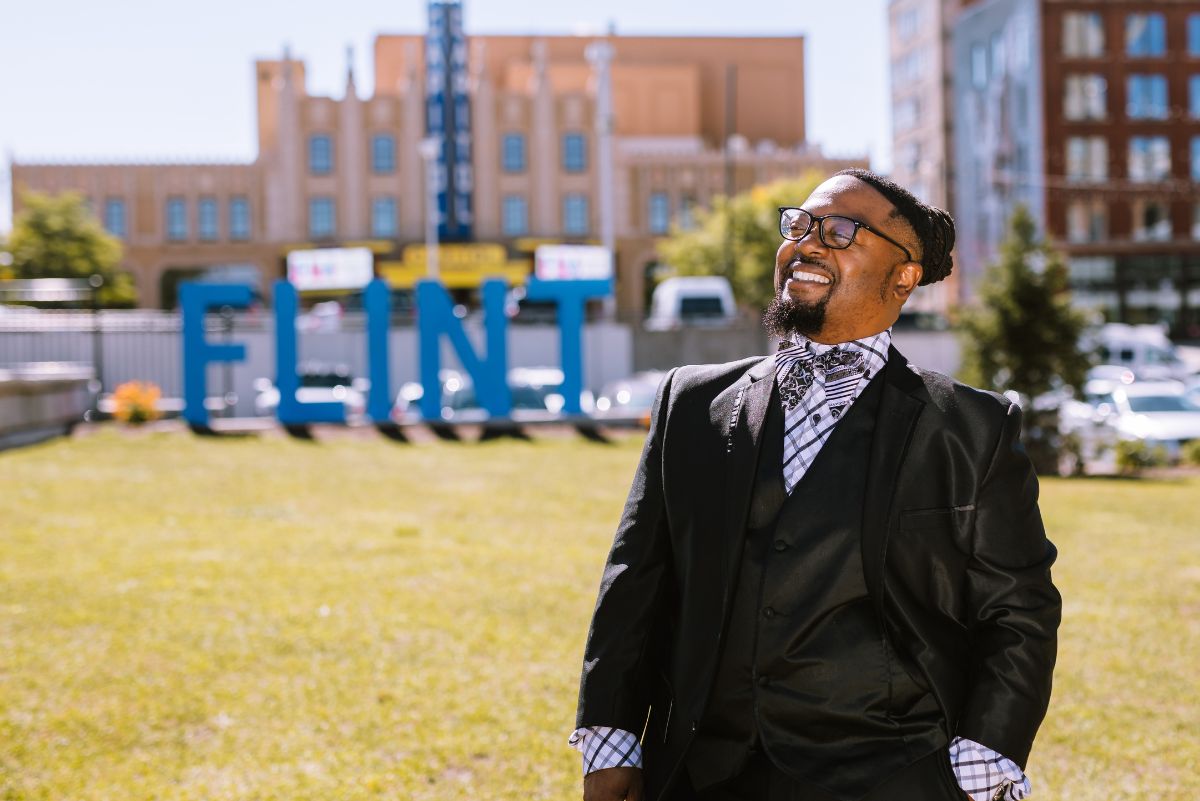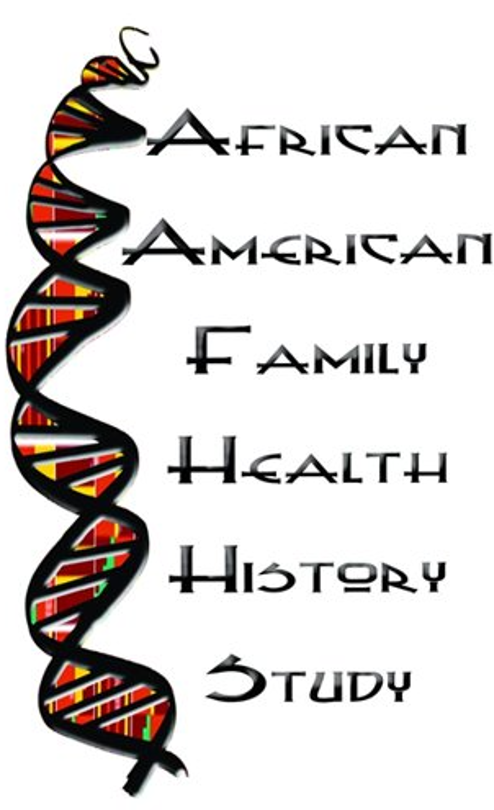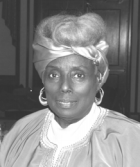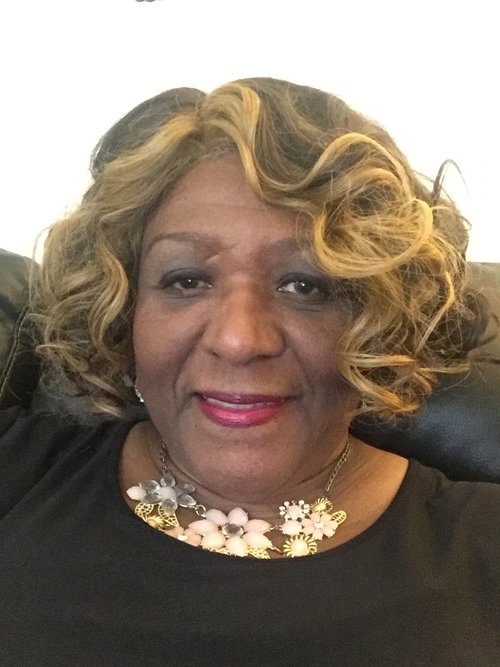Flint Community Guides Creation of Health History Toolkit
- Kent Key, Ph.D., MPH
- Assistant Professor
- Charles Stewart Mott Department of Public Health
- College of Human Medicine
Project Overview
- Funded by a National Institutes of Health (NIH) grant, Kent Key is collaborating with Black Americans in Flint to create a culturally responsive family health history toolkit.
- Many African Americans distrust the health-care system, making them hesitant to discuss health concerns with their doctors, let alone family members.
Products/Outcomes
- With the toolkit, the project aims to encourage conversations about intergenerational family health history while also acting as a guide for conversations with medical providers about health issues and preventative care.
Partners
- Community Based Organization Partners (CBOP) in Flint
Form(s) of Engagement
- Community-Engaged Research
- Community-Engaged Service

Kent Key is a health equity and community-engaged researcher on the faculty of the C.S. Mott Department of Public Health in the MSU College of Human Medicine.
In 2014, Flint, Michigan, made national headlines when it was uncovered that residents’ drinking water had been contaminated with lead after the city’s main water source was switched to the Flint River in an effort to save money.
The water crisis came as no surprise to Flint residents, who observed a change in the color, smell, and taste of their water years earlier. Thousands of people had been exposed to damaging, and in some cases deadly, levels of lead.
Initially, Flint residents’ pleas for recognition of unsafe drinking water were met with a mere “water boil advisory,” perpetuating mistrust within the predominantly Black community. Ten years later, Flint residents are still grappling with the physical, mental, and emotional consequences of the crisis.
Kent Key, Flint native and assistant professor with the Charles Stewart Mott Department of Public Health of MSU’s College of Human Medicine, said the water crisis and generational impacts of lead exposure have heightened interest in “inherited health” —a topic Key noted that has been long overlooked.
Many Black Americans distrust the health-care system, making them hesitant to discuss health concerns with their doctors, let alone family members. That distrust is rooted in a history of disparities in health care and in medical research.
Historical Injustices Play a Role in Limiting Research Participation
“African Americans have been underrepresented in research, specifically in health research,” Key said. “One reason for the hesitancy comes from the historical, unethical treatment of African Americans that goes beyond what we saw from the Tuskegee Experiment.”
His reference dates to 1932, when doctors from the U.S. Public Health Service recruited nearly 600 African American men to participate in the Tuskegee Syphilis Study under the false pretense of receiving free medical care to treat the disease. Rather than providing appropriate care, researchers were more interested in tracking the progression of syphilis for data purposes, while many participants died.
In 1972 a news story leaked, shutting the experiment down after 40 years. By then, 28 participants had died from syphilis, 100 had perished due to related complications, 40 spouses of participants had been diagnosed with it, and the disease had been passed down to 19 children at birth.
Key also referenced the story of Henrietta Lacks, an African American woman who in 1951 went to Johns Hopkins University to be treated for cervical cancer. Without her knowledge or consent, doctors removed cells from her tumor and used them for various research purposes.

The family health history toolkit was designed with community members’ input.
In 2023, 72 years after Lacks was treated at Johns Hopkins, her family reached a settlement with a science and technology company over her stolen cells, now known as HeLa cells, which had been reproduced and used in scientific breakthroughs including the development of polio and COVID-19 vaccines.
Not only does hesitancy in research participation come from a historical lack of trust, but according to Key, African Americans have adopted a culture of silence for survival, which stems from slavery—“certain things just aren’t talked about.” It is also commonly believed in religious communities that if you’re given a diagnosis, you must have faith that you’ll be healed and speaking about an ailment would only give claim or power to it. Lastly, some people do not want to know about health concerns because they cause worry and stress.
“These historical and more present-day issues are examples of why minorities, and I can speak for African Americans, don’t really engage in research,” Key said. “We see gross underrepresentation in research studies but we’re overrepresented in disparities across health indicators.”
According to the Centers for Disease Control and Prevention (CDC), chronic diseases disproportionately affect African Americans, which underlines the importance of discussing health promotion and disease prevention to better understand familial comorbidity and take preventative measures. Further, the National Institutes of Health (NIH) lauds family health history (FHH) toolkits as a valuable yet underused health-care tool. But many of the generic FHH tools used to guide discussions and recordings of familial health are based on predominantly white participants’ communication techniques and health patterns.
Understanding the hesitancy of the African American community and the value of a health history toolkit, Key set out to work with the Flint community to create a toolkit specifically for African Americans.
“My grandmother used to say, ‘If you always do what you’ve always done, then you’ll always get what you’ve always got,’” Key said. “We have always tried to research communities in a cookie-cutter way, even though that cookie-cutter model doesn’t fit every community.”
Inherited Health: What Else Am I Passing Down to My Child?

Mrs. E. Hill De Loney
Early in his career, Key collaborated with Flint natives Mrs. E. Hill De Loney and Reverend Sarah Bailey, Ph.D., whose interests resembled Key’s and revolved around inherited health and health advocacy. De Loney and Bailey are consultants and community partners with Community Based Organization Partners (CBOP), an association of Flint organizations that advocate for and support community-based participatory research, something in which Key’s work is deeply rooted.
As soon as Key, De Loney, and Bailey began to discuss the development of something that would encourage conversations about inherited health with African Americans, the water crisis struck Flint and halted progress.
In the years following the water crisis, questions about inherited health were starting to resurface. Women of childbearing age who had been exposed to lead began to wonder what else their children could inherit from them.
“What the water crisis did was lead us right back to this issue of inherited health,” Bailey said. “The community wanted more information, so we thought this would be a great time to focus on what ‘inherited health’ meant.”
Community Guides Production of Toolkit

Reverend Sarah Bailey
De Loney and Bailey, both prominent figures in the Flint community, shared with Key their collective knowledge of health disparities faced by African American communities, as well as their familiarity with Flint residents, prior to him submitting for the grant.
In 2021, Key received a 5-year grant for $622,000 from the National Institute on Minority Health and Health Disparities (NIMHD) to co-develop FHH tools with African American community members in a study called, “Family Health Histories: Creating a Culturally Tailored Tool to Reduce Health Disparities in the African American Community.”
Leaning on community participation and input, the toolkit would be designed to encourage intergenerational conversations surrounding health history and act as a guide when having conversations with medical providers about health issues and preventative care.
Key said De Loney and Bailey have acted as community leads and been instrumental in easing research fatigue among Flint community members in the aftermath of the water crisis, and guiding recruitment efforts to create community interest in the study.
“We used our social capital to recruit people for the study,” Bailey said. “We were trying to get as much of a mix of people as we possibly could—older people, younger people, men, women—to give voice to different people’s understandings of inherited health.”
The first phase of Key’s study called for a focus group in order to grasp perceptions surrounding participants’ own health histories and further discuss what FHH toolkits were, how they were used, and why they were important.
A common theme that emerged in those conversations was that individuals did not want to know about something that would cause added stress in their lives.
“When you think of the level of racism, systemic oppression, and inequities African Americans have had to go through, another piece of bad news was just not something people wanted to worry about,” Key said.
The second phase called for participation in a community-engaged workshop. The workshop served as a space to address themes identified during the focus group and discuss the benefits that come from utilization of a toolkit.
“A critical component of having and understanding an FHH toolkit is that it then allows doctors to create a care plan to prevent disease, permanent morbidity or mortality, or even death,” Key said. “Discussing a toolkit’s purpose in this way opened up understanding with participants.”
The community workshop also enabled Key to gain insight on what the community saw as top priorities for a culturally appropriate FHH toolkit. One of the first topics that workshop participants mentioned was the need for recognition of historical harm done to earlier generations in the name of research.
“If providers can start off by acknowledging generational injustices in research, people will be more apt to place trust in them,” Key said. “We hope to give people a sense that we have more protections in place now and that we have medical and public health researchers and professionals who embody ethics and are just as appalled about our country’s past and want to right the wrong.”
During the second phase, participants were asked to help design the toolkit, from color schemes and logos to the images and pictures. The toolkit identifies diseases most commonly experienced in the African American community.
The study is currently in its third phase. Fifteen people were recruited, educated on the toolkit, and have been using the toolkit for just over three months. At the 3-month mark, follow-up assessments with participants gauged the toolkit’s usefulness for increasing and recording health history, and for guiding conversations with health-care providers. Similar assessments will be completed at the sixth-month mark in June 2024.
Leaving a Legacy of Health
Following the open trial phase, Key and his team will launch a randomized controlled trial with 100 African Americans, which is the final phase of the study. Fifty people will get a generic FHH toolkit and another 50 will get the culturally specific toolkit created with community members’ input.
Key hopes the study will normalize health history discussions in intergenerational settings and that people will feel more comfortable engaging in research and talking to their health-care providers about health issues and prevention plans.
“I believe the work he’s doing is transformative,” Bailey said. “I’m eager to see if a toolkit like this can work outside of African American communities and be utilized by any community experiencing disparities.”
Key concluded, “What’s most exciting for me is to see African Americans realize their own agency and take control of their own health destinies. We might not leave a legacy of wealth, but we’ll leave a legacy of health.”
- Written by Emily Springer, University Outreach and Engagement
- Photographs courtesy of Kent Key